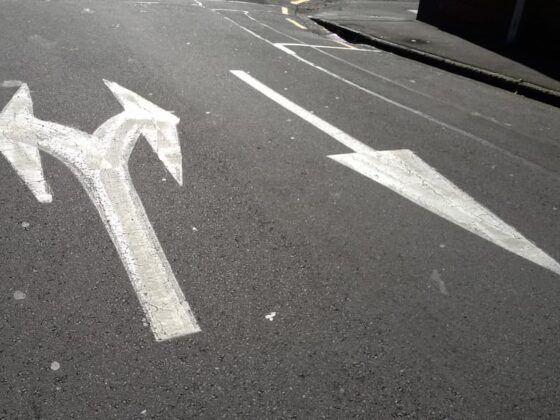Civil Litigation Explained: Injunctions
A series of FAQs about injunctions during court proceedings
Injunctions are court orders restraining persons from taking particular actions (known as prohibitory injunctions) or compelling them to take particular actions (known as mandatory injunctions).
Injunctions are also described as being interlocutory injunctions – that is, interim (i.e. temporary) pending the court granting the injunction after a further hearing or full trial of the matter in dispute – and final injunctions.
In appropriate cases, the court may grant injunctions, among others, to preserve or prevent the loss of assets, to protect against personal harm, to protect business or personal interests, to prevent loss or damage to reputation and to preserve preserve evidence which may be in danger of destruction or concealment.
Today, we answer some of the questions frequently asked about injunctions and explain about some of the injunctions most commonly sought, including Mareva injunctions, proprietory injunctions and Anton Piller orders.
Q1. What is an injunction?
An injunction is an order of the court restraining the commission or the continuance of some wrongful act, or the continuance of some omission.
Prohibitory injunctions restrain the commission or the continuance of an act. Mandatory injunctions require the performance of a positive act to repair some omission or to restore the prior position by undoing some wrongful act.
Injunctions to restrain wrongful acts which are threatened or imminent but have not yet been commenced are known as ‘quia timet’ injunctions.
The court’s jurisdiction to grant injunctions derives from section 21L and section 21M of the High Court Ordinance, Cap 4. It has also been suggested in judicial pronouncements that the court has a very broad inherent jurisdiction for the granting of interlocutory injunctive relief.
Q2. When can a party apply for an injunction?
An application for an injunction can be made at the same time as or after court proceedings have commenced.
In urgent cases, the court can grant an injunction before the commencement of court proceedings (upon the applicant’s undertaking to commence proceedings forthwith) if necessary in the interests of justice.
Acting with speed and urgency is crucial. Generally, unreasonable delay will be a factor militating against the granting of injunctive relief. An applicant’s failure to apply swiftly is taken by the court as indicating a lack of an urgent need to grant relief.
Q3. What must an applicant show in order to obtain an injunction?
There are three general principles governing the grant of injunctions which must be established on the facts before a court will grant an injunction, namely:
- There are serious issues to be tried;
- The court feels that it would be just and convenient to grant the injunction; and
- Damages would be an inadequate remedy.
Q4. Is it necessary to inform the other side if applying for an injunction?
This depends on whether the application is made ‘ex parte’ (that is, without notice to the other side) or ‘inter partes’ (with notice to the other side).
In limited and exceptional circumstances, applications for interlocutory injunctions may be made ex parte i.e. without notice to the other side. The most obvious examples of when this would apply include matters of such extreme secrecy or urgency where there is no time to warn the other side of what is proposed, or where the purpose of the injunction will or may be frustrated if the other side is informed of what is proposed, or where the defendants simply cannot be found.
Otherwise, applications for interlocutory injunctions should be made with notice to the other side.
Q5. What is the procedure for applying for an injunction?
The procedure depends on whether the application is made ex parte or inter partes.
In either case, the application must make it clear what order the applicant is seeking and should be supported by evidence – typically in the form of an affidavit including all material facts of which the court should be made aware and exhibiting relevant documents.
If made inter partes, the application and supporting evidence are served on the respondent, notifying him of when and where the application will be heard.
If made ex parte and on an urgent basis, papers are generally submitted to the Duty Judge. The Applicant’s solicitors (and Counsel if instructed) then wait on stand-by until a judicial clerk calls to say that the Duty Judge, or other judge assigned to deal with the matter if applicable, is ready to hear the application.
On any ex parte application, the applicant has an obligation to give “full and frank disclosure”, that is to inform the court of any points that might help the respondent or that it believes the respondent would make if it had the opportunity to be heard. Failure to give full and frank disclosure will in many cases result in an ex parte injunction being discharged regardless of the merits.
Any injunction orders given ex parte will generally operate only for a limited period of time until the matter can be brought to an inter partes hearing involving all parties where the respondent party will have the opportunity to argue against the continuation of the interlocutory injunction.
Q6. Will the court impose any conditions upon the granting of an injunction?
An order granting an injunction may be made either unconditionally or on such terms as the court thinks just.
Where an interlocutory injunction is granted, the practice is to make this subject to a condition in the form of the applicant’s promise to compensate the respondent or any third party who suffers loss as a result in the event that the court later determines that the injunction ought not to have been granted. This is generally known as an ‘undertaking as to damages’.
In appropriate cases, the court may impose a further condition to the effect that the applicant’s undertaking as to damages be fortified by the payment of security into court, by providing a bond of a bank or insurance company or by some other acceptable means. In such case, unless the applicant provides the security, the injunction will not be effective.
Q7. What should a party do if served with an injunction?
A party served with an injunction should seek legal advice immediately, if possible.
In the meantime, it is important that the party served with the injunction take steps to comply with the terms of the injunction order. Breach of the injunction is generally punishable as contempt of court, which in some cases may lead to imprisonment.
A party served with an injunction should also take steps to preserve any evidence relevant to the matter, so long as this action does not amount to a breach of the injunction.
Q8. What is a Mareva injunction?
A Mareva injunction (also known as a freezing order) is a type of interlocutory injunction which prevents a defendant/respondent from dealing with the whole or part of their assets (i.e. by moving assets abroad or dissipating them) while legal proceedings are ongoing. Mareva injunctions are therefore used to protect the plaintiff’s potential right to access an effective and just remedy at the conclusion of proceedings, ensuring that court process and justice are respected.
To obtain a Mareva injunction, an applicant must show that:
- it has a good arguable case on a substantive claim (i.e. a higher threshold than an application for an interlocutory injunction to restrain the commission of any allegedly wrongful act) which has already been commenced or is about to be commenced against the other party;
- the respondent has assets within the jurisdiction;
- the balance of convenience lies in favour of granting the injunction; and
- there is a real risk of dissipation of assets or their removal from the jurisdiction unless restrained by the court.
Q9. What is a proprietory injunction?
Where a party asserts a proprietary claim over an asset in the possession of the defendant, he may apply for a proprietary injunction (also referred to as a proprietary freezing order) which prevents the defendant from dealing with particular assets over which the applicant asserts a proprietary right pending trial.
To obtain a proprietary injunction, the applicant must show that:
- there is a serious case to be tried as to whether the applicant is the rightful owner of the asset;
- something ought to be done for the security of the asset, and that monetary compensation given at trial would not be an adequate remedy for the applicant; and
- the balance of convenience lies in favour of granting the proprietary freezing order.
Q10. What are the differences between Mareva injunctions and proprietary injunctions?
Proprietary injunctions (or freezing orders) are different to Mareva injunctions.
A Mareva injunction is designed to protect the applicant against the dissipation of assets against which he might otherwise execute judgment whether immediately or in the future. So long as the applicant has a claim against the defendant and the defendant has assets which may be used to satisfy judgment, a claimant may apply for a Mareva injunction to restrain the defendant from dissipating his assets.
A claimant’s right to a proprietary injunction is different. It is issued to preserve assets over which a claimant has a proprietary claim so that they can be turned over to the claimant if he is successful in the action.
There is no need to prove risk of dissipation in order to obtain a proprietary injunction, making it easier to obtain than Mareva relief.
Q11. Can freezing orders be obtained against the assets of a third party?
The court has power to grant a freezing injunction against a third party (against whom no claim lies), provided that it is ancillary and incidental to a good arguable claim against a defendant.
Such relief, known as ‘Chabra jurisdiction’ (from the English case TSB Private Bank International SA v Chabra [1992] 2 All ER 245), is typically exercised against a third party who holds or controls assets beneficially owned by a defendant.
Q12. What is an Anton Piller Order?
An Anton Piller order is a form of mandatory interim injunction which permits the inspection of the defendant or respondent’s premises and civil search for and seizure of relevant materials and documents. The purpose of an Anton Piller order is to preserve evidence which may be in danger of destruction or concealment.
Anton Piller orders are commonly granted in (1) cases involving infringement of intellectual property rights (such as trademarks, copyright and trade secrets, and passing off); (2) anti-competition cases brought by former employers against ex-employees; and (3) matrimonial proceedings where it is thought that a spouse has failed to make truthful disclosure of his or her assets.
To obtain an Anton Piller order, the applicant must show:
- A strong prima facie case of a civil cause of action (NB: suspicion that there may be a cause of action should not be enough);
- The danger to the applicant to be avoided by the grant of the order must be serious (NB: if an order is sought to prevent the destruction of evidence, the evidence in question must be of major, if not critical, importance;
- There must be a “real possibility” that the respondent may destroy or dispose of the material and real reason to believe that the respondent will disobey an injunction for the preservation of the evidence in question; and
- The harm likely to be caused by the execution of the order to the respondent and his business affairs must not be excessive or disproportionate to the legitimate object of the order.
Key takeaways
Injunctions are equitable remedies. Accordingly, applicants are required to act without undue delay to preserve their rights. They must also act reasonably and conscionably.
In particular, applicants for injunctive relief should bear in mind the following:
- Applying for and obtaining an injunction often involves significant costs not just in terms of the preparation of the initial application (very often on an urgent basis) but also, if contested, at the subsequent inter partes stages;
- Applicants are obliged to give full and frank disclosure;
- Failure to give full and frank disclosure may result in an injunction being subsequently discharged for material non disclosure;
- Applicants will generally be required to give undertakings to the court, including an undertaking as to damages under which the applicants promise to compensate the respondent or any third party who suffers loss as a result if it is subsequently determined that the injunction ought not have been granted;
- Damages payable under an undertaking as to damages, depending on the circumstances, could be substantial;
- Acting swiftly and urgently is essential.
For information purposes only. Its contents do not constitute legal advice and readers should not regard this as a substitute for detailed advice in individual instances.





